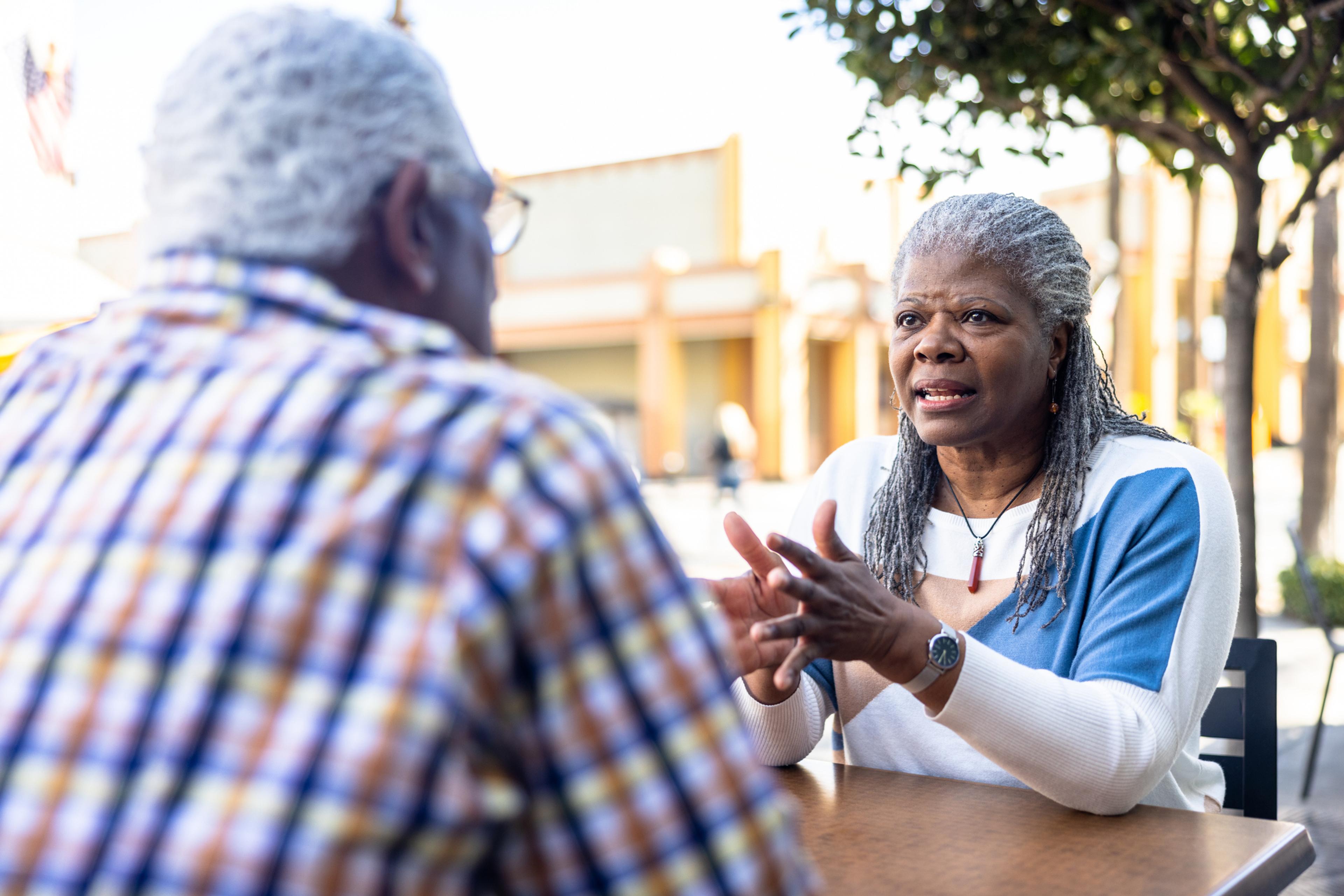The State of Mental Health for Seniors in Diverse Communities

Dr. Kristyn Gregory, D.O.
| 4 min read
Dr Kristyn Gregory, D.O., is a medical director at B...

A lifetime of race-related stress and unmet mental health care needs usually leads to a worsened mental health state for seniors in diverse communities.
Older people of color face a disproportionate number of challenges across the mental health care continuum due to internalized, interpersonal, systemic and medical racism. Socioeconomic factors play a role as well.
Racism’s traumatizing effect on mental health
Trauma caused by racism can have a direct effect on the development of mental illness. Exposure to cumulative experiences of racism results in limited access to crucial resources like education, employment, health care, housing and political participation. These factors contribute to health disparities and increased rates of mental health disorders such as depression, anxiety and dementia.
The many types of racism help explain trauma. Two forms in particular – institutional racism and internalized racism – depict racism’s wide-casting net, both from a structural, societal standpoint and on an individual’s mind.
Institutional racism is discriminatory treatment and unfair policies that cause harm to people of color, often inadvertently or unintentionally. As it applies to health care, hospitals and clinics continue to experience financial constraints, a lack of resources and a lack of diversity within their staffs, all of which can lead to inequities in access and quality of health care. These are major contributors to racial and ethnic health disparities.
Internalized racism is a form of self-loathing that occurs when racism and white supremacy affect the minds of minorities and make them believe they are inferior because of their own race. It erodes a person’s sense of value and can cause depressive symptoms.
How culture impacts mental health for older minority adults
A person’s cultural background shapes the way they perceive and seek mental health care. Here are some of the most notable ways culture affects the mental state of older adults:
- Cultural stigma: Every culture views mental health differently. For example, people in the Hispanic/Latinx community can be very private and may not want to publicly talk about challenges at home or in their lives. This can continue the cycle of stigma about mental health within their communities, as talking about it can be seen as taboo.
- Understanding of symptoms: Culture influences many aspects of mental illness, including how patients of a given culture express and manifest their symptoms, how they choose to cope, how their family and community supports them, and their willingness to seek treatment.
- Community resources: Limited access to community resources like grocery stores, pharmacies, culturally competent health and aging service providers, transportation, and housing can contribute significantly to race-related stress. This in turn creates barriers to achieving healthy and productive aging.
- Reliance on religion: Research shows that Black and Latinx Americans are more likely than their white counterparts to rely on religious institutions to help with mental health issues. Decades of marginalization and exclusion from formal mental health resources fostered a dependence on spiritual and familial coping.
Showing support and finding solutions
Being proactive can promote better mental health in older adults. Here are four places to start:
- Connect with loved ones: Check in regularly with loved ones, especially the older adults in one’s life who live alone, as loneliness and isolation are two risk factors for depression. Call, visit and actively listen to what they have to say.
- Ask meaningful questions: Respectfully ask in-depth questions that show genuine care and concern. These questions should go beyond general pleasantries. For example, ‘what have you been thinking about lately?’ and ‘what is something that would make you feel happier?’
- Encourage self-care: Self-care is key in managing the aging process. It encompasses good sleep, nutrition, exercise and engagement in mindfulness techniques. Loved ones should not only connect regularly, but they should also encourage hobbies and social activities, such as joining a book club or taking regular nature walks.
- Get help: Concern about an aging parent or loved one’s mental health should be discussed. Family members of older adults should play an active role in discussing concerns with their primary care provider (PCP) and attending visits with their PCP, to provide an extra set of eyes and ears. If necessary, connect them with culturally competent mental health resources such as support groups or counseling. Remind them that they are not alone and that mental health conditions can affect anyone. Help is out there.
Kristyn Gregory is a medical director of behavioral health at Blue Cross Blue Shield of Michigan. For more health tips and guidance, visit MIBluesPerspectives.com.
Photo credit: Getty Images





